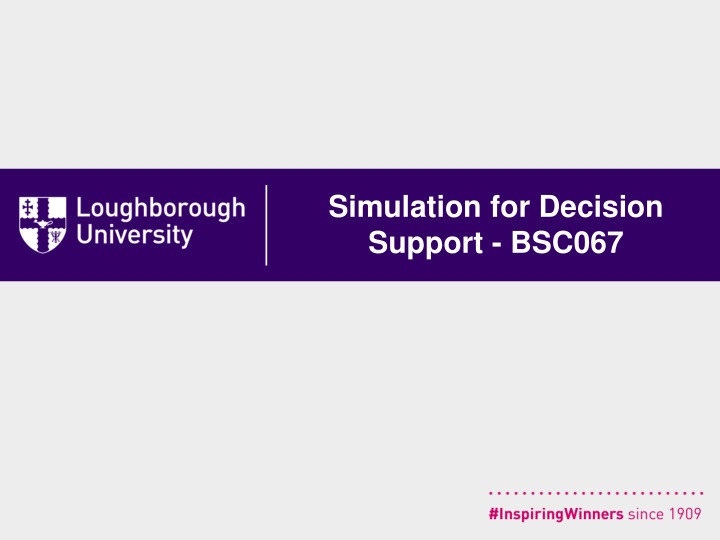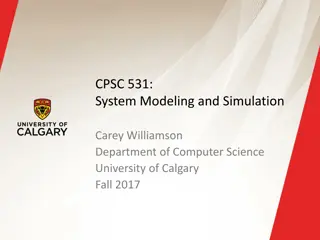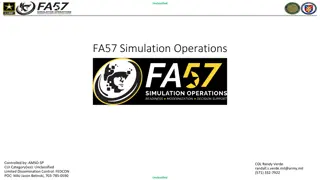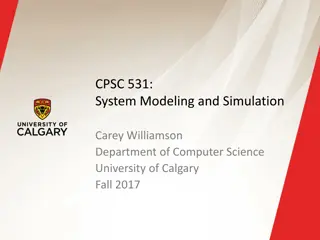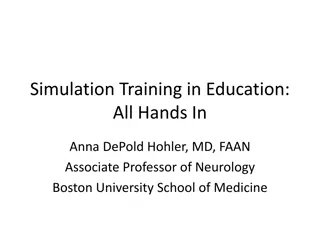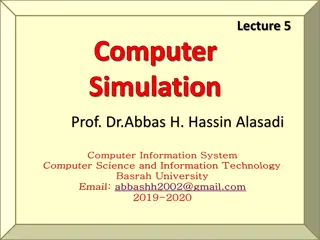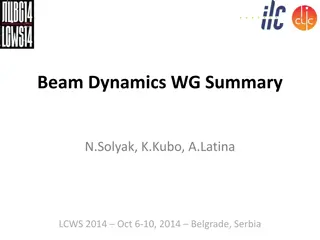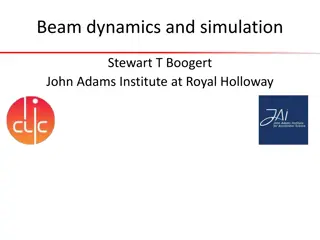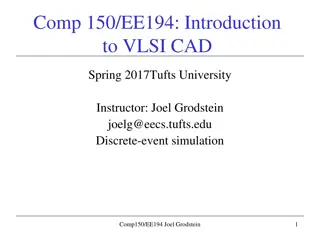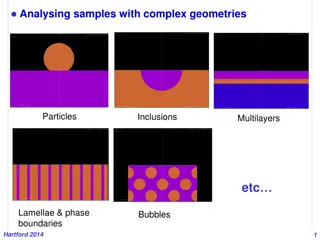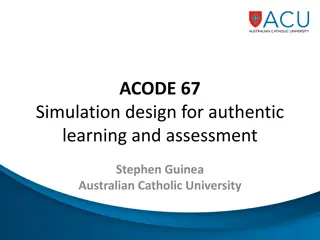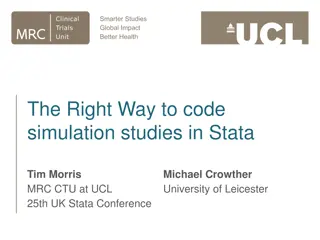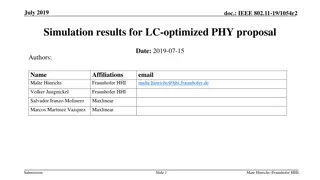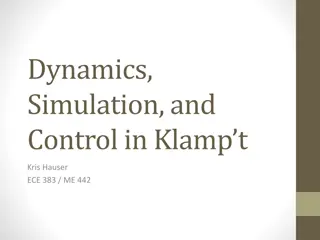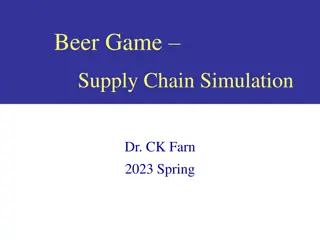Simulation for Decision Support - Critical Business Dynamics
This module focuses on developing skills in modelling and simulation to aid decision-making in dynamic business environments. Students will learn key simulation methods, model verification, and validation, with assessments including building simulation models and essays on alternative methods in management and business.
Download Presentation

Please find below an Image/Link to download the presentation.
The content on the website is provided AS IS for your information and personal use only. It may not be sold, licensed, or shared on other websites without obtaining consent from the author.If you encounter any issues during the download, it is possible that the publisher has removed the file from their server.
You are allowed to download the files provided on this website for personal or commercial use, subject to the condition that they are used lawfully. All files are the property of their respective owners.
The content on the website is provided AS IS for your information and personal use only. It may not be sold, licensed, or shared on other websites without obtaining consent from the author.
E N D
Presentation Transcript
Simulation for Decision Support - BSC067
About This Module The aims of this module are to: develop a critical appreciation of how the dynamics of the environment in which organisations work impact on their performance and decisions; develop skills in modelling and simulation of business dynamics as an aid to decision-making; build on students' industrial placement experiences; further develop students' skills in using computer packages
Module content Key stages in developing and using simulation models in business Facilitated modelling Use simulation software to develop models focus on 2 simulation methods: discrete-event simulation (DES) and System Dynamics (SD). Critical evaluation of the use and relevance of simulation in management decision making. Model Verification & Validation
Teaching and Learning Lectures (10x2hr): taught lectures, guest speakers. Computer lab sessions with practical exercises (x6) Independent study group & individual Group-based role play experience of facilitated workshops
Assessment and Feedback No Exam 100% coursework 1. Group Coursework (50%) You will build a discrete event simulation model & produce a report (max 2000 words) Feedback: Written feedback on the work submitted will be provided. 2. Essay (50%) You will prepare a short essay on the use of alternative simulation methods in management and business (max 1500 words) Feedback: Individual written feedback will be provided.
Wider skills and knowledge development On completion of this module students should be able to: Knowledge describe in general terms, and illustrate appropriate use of, simulation modelling approaches; critically appraise the relevance and use of simulation and facilitated simulation in specific management and business situations; critically appraise the key stages in developing and using simulation models and apply the approaches to real business problems; use appropriate simulation software to develop models as an aid to decision-making. Skills build simulation models, following relevant modelling procedures and activities. demonstrate competence in a range of computer packages; follow an appropriate life-cycle for the development and use of management models.
Why choose this module? Appreciate how simulation can help organisations improve their performance Further develop your modelling skills Learn how to make sense of problems & design a project. For further information contact Dr. Antuela Tako (a.takou@lboro.ac.uk)
Reading material ROBINSON, Stewart., 2014. Simulation : the practice of model development and use. 2nd. Palgrave Macmillan.Note: Book relevant for DES modelling part of the module (Key Book) LAW, Averill M., 2014. Simulation modeling and analysis. 5th ed. McGraw- Hill.Note: Book relevant for DES modelling part of the module (Additional Book) PIDD, Michael., 2004. Computer simulation in management science. 5th. Wiley.Note: Book relevant for both DES and SD modelling part of the module (Additional Book) MORECROFT, John D. W., 2007. Strategic modelling and business dynamics : a feedback systems approach. Wiley-Blackwell.Note: Book relevant for SD modelling part of the module (Key Book) STERMAN, John D., c2000. Business dynamics : systems thinking and modeling for a complex world. Irwin McGraw-Hill.Note: Book relevant for SD modelling part of the module
